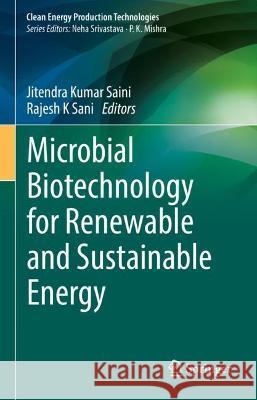Microbial Biotechnology for Renewable and Sustainable Energy » książka
topmenu
Microbial Biotechnology for Renewable and Sustainable Energy
ISBN-13: 9789811638510 / Angielski / Twarda / 2022 / 389 str.
Kategorie:
Kategorie BISAC:
Wydawca:
Springer
Seria wydawnicza:
Język:
Angielski
ISBN-13:
9789811638510
Rok wydania:
2022
Wydanie:
2021
Numer serii:
001025907
Ilość stron:
389
Oprawa:
Twarda
Wolumenów:
01
Dodatkowe informacje:
Wydanie ilustrowane











